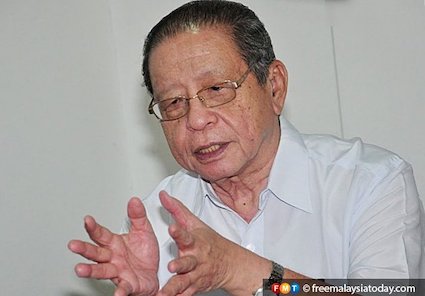Keep DPPs and manifesto apart, say lawyers

(FMT) – Two lawyers have said it is improper for deputy public prosecutors to read up on Pakatan Harapan’s election manifesto so as to understand the current government’s position on certain laws, as suggested by DAP adviser Lim Kit Siang.
The lawyers, Jayaseelan Anthony and N Sivananthan, said a political manifesto, not being a legal document, could not be a basis for prosecution.
To put the burden on DPPs to read the PH manifesto was “being too simplistic to the extent of being foolish”, said Anthony.
Their comments come in the wake of a renewed controversy over government prosecutions being carried out despite PH having taken a stand against some laws, such as the Sedition Act.
On Thursday, the High Court allowed a prosecution appeal in a sedition case involving preacher Wan Ji Wan Hussin and increased his jail term from nine months to a year. He had been convicted by the Shah Alam Sessions Court for publishing words deemed insulting to the Sultan of Selangor in a Facebook posting in November 2012.
In response, Lim said that “to avoid the Wan Ji mishap from happening again, all DPPs should read the Harapan manifesto and seek new instructions from the attorney-general if they had queries, especially with cases started before the last general election”.
Anthony said the Attorney-General’s Chambers were not bound by a government promise to repeal the Sedition Act, although Malaysians would expect that pending sedition cases, including any appeal, would be withdrawn.
“That is what has been happening all this while but in Wan Ji ‘s case, something went terribly wrong with the AG’s chambers,” he said.
He said the AG’s Chambers should have a simple spreadsheet of all pending sedition cases. The AG should have discussed these cases, including Wan Ji’s case, with the head of the prosecution unit,” he told FMT.
DPPs would then have proper instructions to withdraw the cross-appeal against Wan Ji.
“Here you have a case where the right-hand does not know what the left hand is doing. This is not good for the AGC as people will lose confidence in the AGC.”
Sivananthan said: “If a DPP has to refer to, and read, a political manifesto, then it is nonsensical and completely wrong.”
He said all policies and instructions should be directed by the Attorney-General instead of citing a manifesto. The idea to refer to the manifesto would suggest a political element to the decision-making process among DPPs.
A manifesto could not be a basis of a prosecution, and also went against the “neutrality” agenda that everyone has been fighting for.
Another lawyer, Syed Iskandar Syed Jaafar Al Mahdzar, said politically-motivated cases initiated by the previous regime should be easily detected. DPPs should thus seek the AG’s guidance first on whether to proceed.
PH’s manifesto could not form the basis of whether or not to prosecute a person. However, it would still serve as a guide to the present government’s policies. He suggested that those who ignored the spirit of the manifesto “thus are no longer fit to be working for the government of the day”.
Criminal lawyer KA Ramu said DPPs should be well versed with the laws of the land and also national issues.
“Even if the Petition of Appeal on inadequate sentence was filed by the DPP before the last general election, they should have sent a note to the AGC to get further instructions as this involves public policy and the manifesto whether to pursue the appeal on sentencing to avoid unnecessary debate.”

